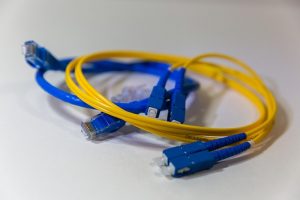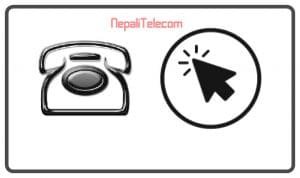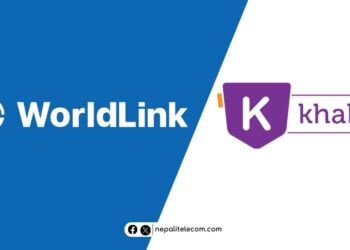Due to the ongoing Corona Virus pandemic, people stayed at home and are doing nothing but the internet. Staying at home is the safest thing you can do to protect yourself from the Covid-19 infection. That’s what people here in Nepal did, following the request of the government for lockdown. Nepali companies are also considering their best effort to handle the coronavirus infection using IT tools. Read more on How Nepal is tackling the Covid-19 spread?
As schools, colleges, and now all offices except the emergency service providers have also shut down, people will be at home only. Due to which, internet usage has surged drastically with people seeking fresh information and professionals working from home.
It is not only the home internet traffic but the voice, data in mobile phones also increased remarkably. There are also these hoaxes/fake rumors which have some effect on telecom/internet traffic. We request you not to believe the unofficial news or rumors without proper verifications.

Internet demand increases, speed decreases
This surge in traffic has clogged the internet bandwidth that can be really felt in the peak hours. For the reason, you can take an example of road traffic here which can handle specific traffic or limit, after crossing which there will be a traffic jam. The network congestion is the same as the traffic jam which you can see in the highways for people flooding out of Kathmandu due to the fear of the virus.
According to Bhojraj Bhatta, Chairman of ISPAN, internet bandwidth usage has increased by 30% in this lockdown situation. The capacity of the internet has crossed its limit making it difficult for Internet service providers and telcos. As per ISP’s, the peak usage of the home internet comes from 8 pm to 11 pm which is also the same for cellular networks. So, the internet speed will be very slow mostly in those periods.

Apart from those peak times, the network providers have also found peak usage traffic throughout the day. It is only due to people doing the internet all the time. Here, the biggest internet devouring is from social networking and streaming sites like Facebook, YouTube, and Viber.
Reasonable usage?
ISPAN requests people to use the internet reasonably. Being in the early stage of the restrictions, the current huge traffic growth forecasts that it will be difficult to maintain for later. This surge seems to increase further in the coming days as there is no prompt recession to the outbreak.
Issuing a press release, ISPAN has also asked people not to change their internet settings as it will be difficult to send support teams in the partial lockdown stage.
NTA, the regulator has also asked people to use the internet for genuine requirements in this crisis period. They urge people not to break the internet with binge-watching or gaming. Find what NTA notice has it for the people.
Some people are gobbling up the internet making it difficult not only to the ISPs but also to others who are doing genuine works using it. It could deprive other people of righteous information or professional work from homes like online meetings or discussions.
Reason for the congestion
The major reason for the trouble is that network providers have not designed their network for such huge network access. It is not only the home broadband but it applies for the mobile broadband both share the similar network elements in the backend. But our test found mobile broadband is more capacious than home broadband, see below.

Difficult to handle
It is not like the telcos or ISPs cannot increase the broadband capacity. But it takes a lot of time and effort like buying equipment and more internet bandwidth from abroad. Internet bandwidth comes from India and they too have this sort of problem due to the increasing Coronavirus infection. Which makes it difficult to arrange such internet bandwidth for the current demand that emerged from Covid-19. Similarly, as all of the countries are troubled with this virus infection, it will also take months for the equipment to reach here.
ALSO READ: Why network becomes problematic during disaster situations?
How to act responsibly?
Instead, if the customers follow some restraints in using the internet/phone, it will be helpful to the network providers to maintain the internet/voice traffic in this emergency period.

Here are some of the tips that you can follow to act responsibly to save some internet bandwidth for those who need it.
- Maintain low-speed internet access during peak periods. Normally in the evening (8 to 11 pm).
- Limit the huge file downloads or video streaming or gaming in off-peak periods.
- Do not download documents or files unless necessary or do it in off-hours.
- Do not share videos (or of high quality) or go live in social network sites like Facebook unless urgent or related to awareness of #covid-19.
- Try to send the link of big files rather than attaching it.
- Prefer calling over landline phones than mobile in peak hours.
- If you have to watch the video urgently, then you can limit the video quality rate to lower than HD. The video quality rate change can be made on the YouTube mobile app.
If we follow the above measures for internet usage, it will help network operators to focus on the maintenance of nodes/paths than managing bandwidths. Similarly, this will prevent the collapse of the network with traffic explosion.
Downgrading video quality
People’s stay at home is more immense in the most affected countries in Europe due to the lockdown and preference of internet for all. Whether it is for entertainment or communication or news or professional work, people need the internet, surging the demand and inviting network congestion.
So, the largest video streaming site, Netflix has curtailed the streaming rates to Standard definition for 30 days in Europe. Netflix estimates that this will cut their internet traffic in the European network by 25%. They believe this will help to maintain the network quality in these tough situations. Some countries might have used the dynamic streaming rate that should suit the available internet bandwidth. So, there will be no issue in such countries. Find Top TV and Video streaming apps in Nepal.
Test
Yesterday night when there was an issue with home internet, we had performed multiple tests during peak hours. That time, the home broadband speed was very slow while we found the mobile broadband was not much affected. It is also visible in the speed test result snapshots shared in the comments.
If you find any issue in your home broadband, you can use the mobile broadband (3G/4G) network with large volume data. It seems the cellular broadband is more capacious than the home internet. As the cellular network charges per MB, the usage might have been low with it. But if you take large-volume data, the cost will come down heavily.
Tell us if you have encountered such slow internet in your home broadband, do comment with your location and ISP name, in the comment section below.













